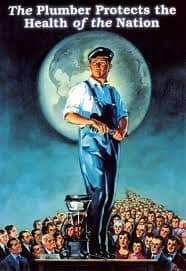Step 1: Get Your High School Diploma or GED equivalent
The very first and most elementary step in how to become a licensed journeyman plumber is getting your education. High school graduates have the best chance of landing a plumbing apprenticeship because of the English, math and applied physics skills, which will help when taking the apprentice plumbing aptitude test. If you don’t have a high school diploma, a GED certificate will work in the vast majority of apprenticeship programs. It isn’t required to have a GED, however, it is an important part of finding a good job and building a resume.
Step 2: Join a Plumbing Apprenticeship Program
Joining a plumbing apprenticeship program is the next step in your plumbing career. Once you locate a local union, or other apprenticeship program, you will need to make sure you meet the initial requirements. You must be actively working for a Plumbing contractor who will sponsor you in an apprenticeship program. Other requirements include a minimum age of 18, valid driver’s license, reliable transportation a possible drug screening for admittance into the program. Once you have been accepted as an apprentice by a union or private practice plumber, you’ll work under a journeyman or master plumber for a set number of years. Usually this between 4 and 5 years and includes a combination of on-the-job training and plumbing courses.
Step 3: Complete the Required Number of Classroom and On-the-Job Training Hours

Each plumbing apprenticeship will have it’s own minimum number of work and classroom hours and a Journeyman Plumber usually works alone or supervises an apprentice you’ll need to complete in order to become eligible for the Journeyman’s Plumbing exam. These vary from state to state so make sure you check your state’s requirements. Generally speaking, you should expect to complete at least 2000 hours of work experience per year, and another 250 classroom hours per year. These numbers are not set in stone, but rather a rough average of what many states will expect.
You may be discouraged, thinking it’s going to take a long time for training. This is true, but the positive thing is an apprentice plumber’s wages are very good. An apprentice can earn half of what a Journeyman’s salary is. Plumbers can earn in the upper $30 per hour. Knowing this you should expect to make $16 – $20 per hour based on your skill set.
Step 4: Take the Journeyman’s Plumbing Exam
Once your formal education is complete you should be eligible to take your state’s journeyman’s plumbing exam. Inquire within your local union or your states department of labor to see when and where you can sit in on the exam. If you completed your plumbing apprenticeship through a private plumbing company, you will need to obtain an affidavit that confirms you have met the state’s requirements and are eligible.
If you have not completed the apprenticeship classroom requirement, along with the on the job training hours, you cannot take the journeyman’s exam.
Step 5: Get Your State Journeyman Plumber’s License
On successfully passing the examination, you will be granted a state license related to plumbing as well as a journeyman plumber certification. This license will have a fee associated with it, and will also have to be renewed yearly. The fee is nominal, but make sure to keep your certification current.